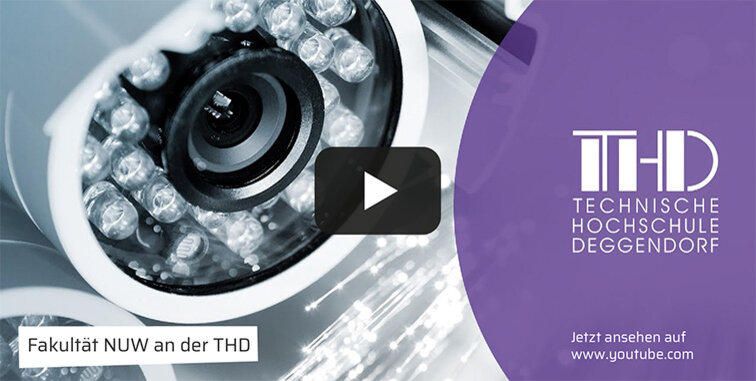Do you Love Challenges?
Gain Practical Skills and a Creative Mindset for your Future
This degree programme is no longer offered.
We provide support for internships, starting a job in a company, or setting up your own business

The Multi-Talent among Engineers - Basic Research-Oriented, Flexible, Interdisciplinary
#technicalsystems #sensorics #optics #signalprocessing #laser #materialsresearch #development #produdtdevelopment #recycling
#processdevelopment #automation #smartmaterials #medicaltechnology #automotivetechnology #airandspacetravel
#energysupply #sustainablematerials #autonousdriving #mechatronics #glasstechnology #digitalproduction #industry4.0 #simulation
The demands in the working world of engineers are very different and are changing rapidly these days. Engineers who are specialised but also have a broad range of knowledge are in demand. The degree programme "Interdisciplinary Engineering Sciences" is your opportunity for a broad-based, challenging engineering education at the Deggendorf Institute of Technology. If natural sciences and the desire to understand technology are your thing and you are open to different disciplines, this degree programme is the right choice. Large parts of the degree programme are deliberately kept very fundamentally oriented in order to give graduates the opportunity to understand technical systems in their entirety, not just in technical aspects. The orientation towards the fundamentals provides you with the basis for later flexibility and should give you the skills to master the requirements of the future or to shape your professional interests. The university's technology campus, which is linked to the Faculty of Applied Natural Sciences and Industrial Engineering, offers you unique competences that are incorporated into this degree programme.
Fact Sheet Interdisciplinary Engineering Sciences
Degree: Bachelor of Engineering (B. Eng.)
Duration: 7 semesters (3.5 years)
ECTS points: 210
Start: 1st October (winter semester)
Application Period: 15 April - 15 July
Location: Deggendorf
Taught in: German
Admission requirements:
- General German university entrance qualification, or please check your eligibilty at the DAAD if you own an international qualification
Pre-requisites: Interest in scientific and technical topics
Key areas:
- Modern materials
- Sensor technology
- Simulation of technical systems
Postgraduate courses:
- Master Applied Research in Engineering Sciences
- Master Technology Management
- Master Mechatronic and Cyber-Physical Systems
- Master Artificial Intelligence for Smart Sensors and Actuators
Fees:
- No tuition fees, only student union fee
- International students from non-EU/EEA countries are required to pay service fees for each semester. Click here to read about our service fees.
Enquiries:
- For general enquiries about studying at DIT contact our prospective student advisors or email welcome@th-deg.de
Career Prospects
The focus of your professional activity will always be the technical development process of a product, component, material or process, depending on a specific objective. For example, satellite signals must be coordinated in order to be able to navigate optimally here on earth via GPS. Or imagine a scene from your favourite film. Film cameras must be calibrated in such a way that the same impression of brightness is created from every shooting perspective. And what would a film be without a change of perspective?
As an engineer of "Interdisciplinary Engineering Sciences", it is your task to understand the objective, the necessary components, functional principles and their interaction. Usually, before the hardware even exists, it is a matter of specifying a product, component, material or process, making it measurable and verifying it. Showing alternatives via modelling and simulation will also be part of your tasks. That's why the "Interdisciplinary Engineering Scienes" degree programme focuses on the topics of sensor technology, simulation of technical systems and new materials. Because this knowledge is always in demand when modern technical systems are created or are to be equipped with new properties. You can even be involved in the individual development of sensors according to the application.
The framework conditions of your work will usually be activities on the computer as well as in the laboratory. You will work partly on your own responsibility, but also in coordination with your team colleagues. This is another reason why the ability to communicate with a broad technical background is an important competence: in order to clearly define work packages or the corresponding interfaces on which others build, and to document results. As a team player with the ability to take responsibility and the knowledge gained from the degree programme "Interdisciplinary Engineering Sciences", you have the best prerequisites to be successful. You can find a job in many exciting industries: Automotive, aerospace, medical technology, packaging industry, optics, research institutions, sensor technology and electronics and much more: everywhere where the interdisciplinary overall understanding of technical systems and products is important.
Subject Overview
Overview of lectures and courses, SWS (Semesterwochenstunden = weekly hours/semester) and ECTS (European Credit Transfer and Accumulation System) in the Bachelor's degree Interdisciplinary Engineering Sciences.
| 1. Semester | SWS | ECTS |
| Mathematics 1 | 4 | 5 |
| Computer Science 1 | 4 | 5 |
| Physics 1 | 4 | 5 |
| Basics in Electrical Engineering 1 | 4 | 5 |
| English for Engineers | 4 | 4 |
| Business Administraion and Law for Engineers | 2 | 2 |
| Digital Sovereignty | 2 | 2 |
| Technical Communication, Scientific Work | 2 | 2 |
| 2. Semester | SWS | ECTS |
| Mathematics 2 | 4 | 5 |
| Computer Science 2 | 4 | 5 |
| Physics 2 | 6 | 5 |
| Physics Internship | 4 | 5 |
| Construction | 4 | 5 |
| Basics in Electrical Engineering 2 | 4 | 5 |
| 3. Semester | SWS | ECTS |
| Computer Aided Manufacturing | 4 | 5 |
| Mathematics 3 | 4 | 4 |
| Computer Algebra Systems | 2 | 3 |
| Basics in Electronics | 4 | 4 |
| Digital Technology | 4 | 4 |
| Engineering Mechanics 1 | 4 | 5 |
| Sensors and Measurement | 4 | 4 |
| 4. Semester | SWS | ECTS |
| Engineering Mechanics 2 | 4 | 4 |
| Control Engineering | 4 | 4 |
| Statistics | 4 | 5 |
| Modern Physics | 6 | 5 |
| Chemistry | 4 | 4 |
| Materials Science | 4 | 4 |
| Project Work | 4 | 5 |
| 5. Semester | SWS | ECTS |
| Internship | 22 | |
| Practical Seminar | 2 | 3 |
| Practical Specialisation | 4 | 5 |
|
Choice of Focus Area: |
||
|
AREA 1: Modern Materials |
||
| 6. Semester | SWS | ECTS |
| Plastics | 4 | 5 |
| Internship in Modern Measurement Technology | 4 | 5 |
| Glass and Smart Materials | 4 | 5 |
| Semiconductors | 4 | 5 |
| FWP I (if possible from Area 2 or 3) | 4 | 5 |
| FWP II (if possible from Area 2 or 3) | 4 | 5 |
| 7. Semester | SWS | ECTS |
| Spectroscopy | 4 | 5 |
| Composites | 4 | 5 |
| Optics Design | 4 | 5 |
|
AREA 2: Sensor Technology |
||
| 6. Semester | SWS | ECTS |
| Microcomputer Technology | 4 | 5 |
| Internship in Modern Measurement Technology | 4 | 5 |
| High-frequency Sensor Technology | 4 | 5 |
| Laser Measurement Technology | 4 | 5 |
| FWP 1 (if possible from AREA 1 or 3) | 4 | 5 |
| FWP 2 (if possible from AREA 1 or 3) | 4 | 5 |
| 7. Semester | SWS | ECTS |
| Spectroscopy | 4 | 5 |
| Optical Metrology and Sensor Technology | 4 | 5 |
| Microsystems Technology | 4 | 5 |
|
AREA 3: Simulation of Technical Systems |
||
| 6. Semester | SWS | ECTS |
| Numerical Methods | 4 | 5 |
| Optimisation Methods | 4 | 5 |
| Internship in Modern Measurement Technology | 4 | 5 |
| Simulation with FEM and Multiphysics | 4 | 5 |
| FWP 1 (if possible from AREA 1 or 2) | 4 | 5 |
| FWP 2 (if possible from AREA 1 or 2) | 4 | 5 |
| 7. Semester | SWS | ECTS |
| Computer Physics | 4 | 5 |
| Simulation of Electrical/Electronics | 4 | 5 |
| Microsystems Technoloy | 4 | 5 |
| Bachelor Module | ||
| Bachelor Thesis | 12 | |
| Colloquium | 3 |




